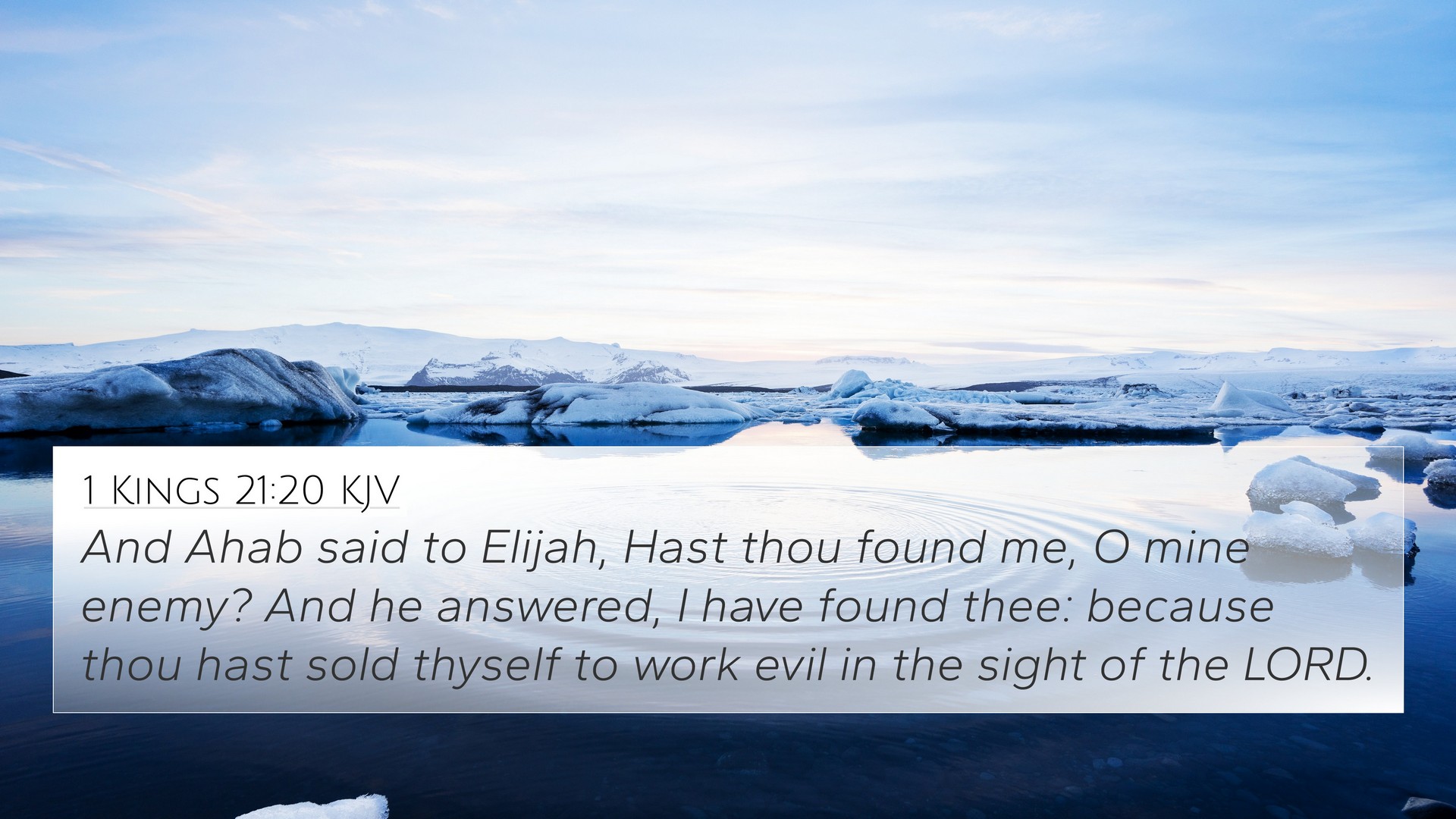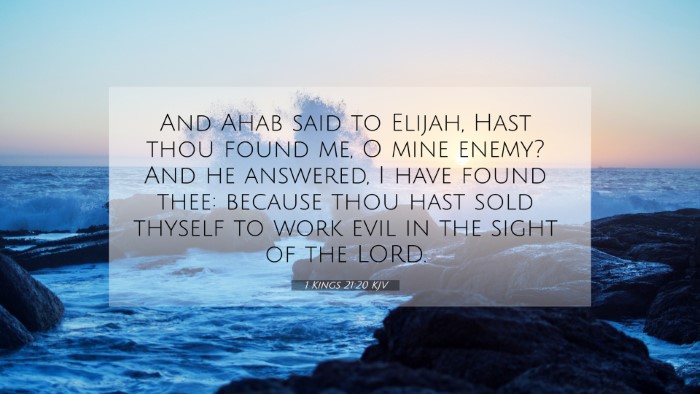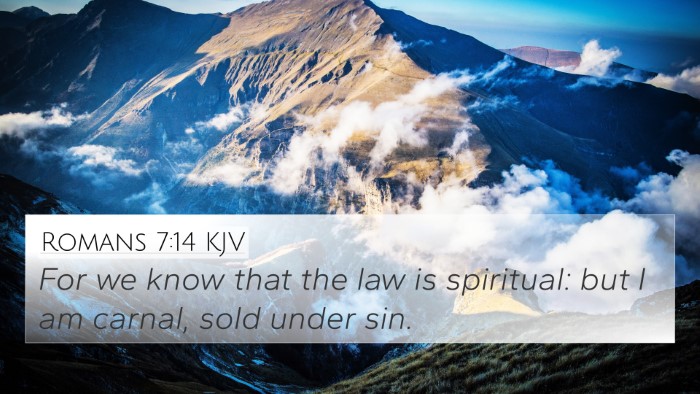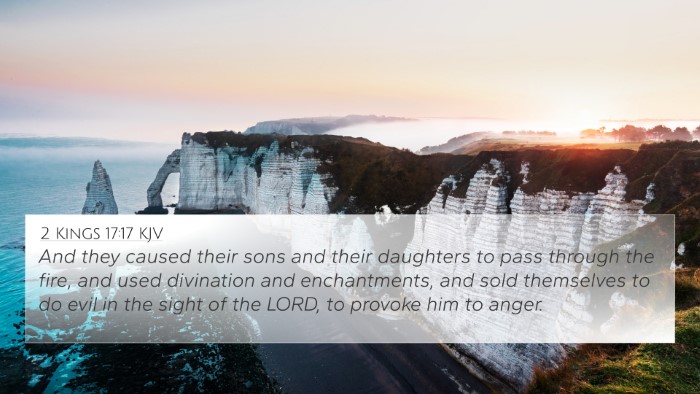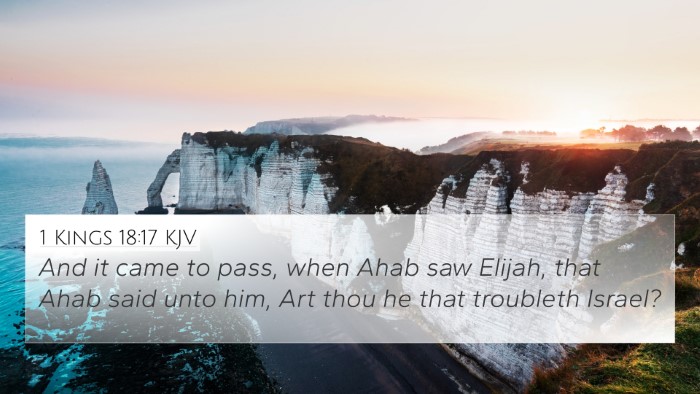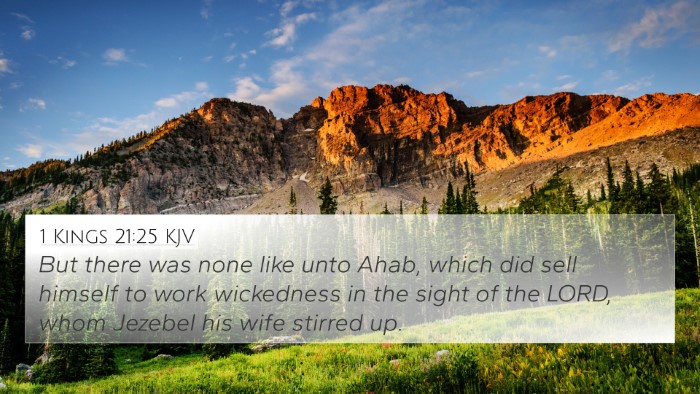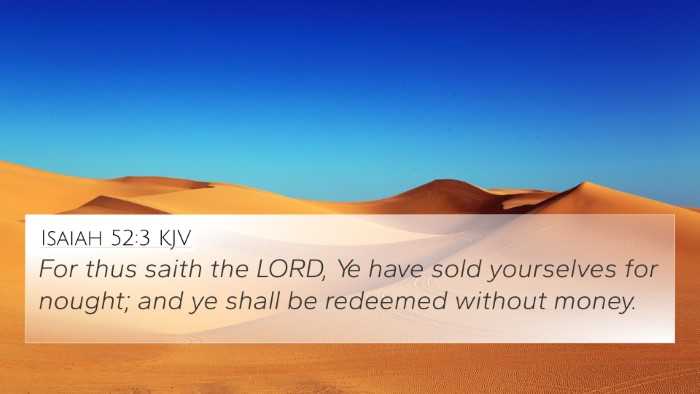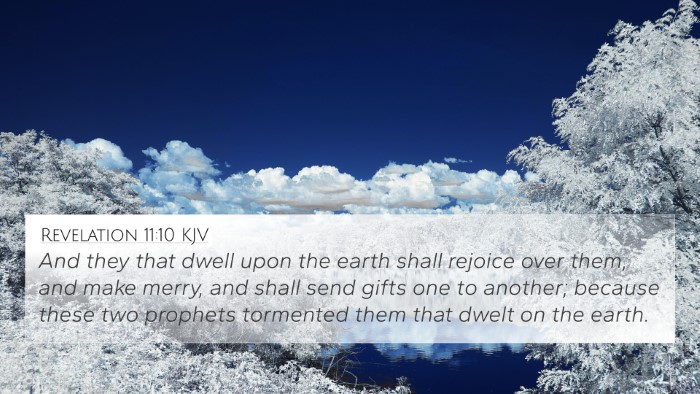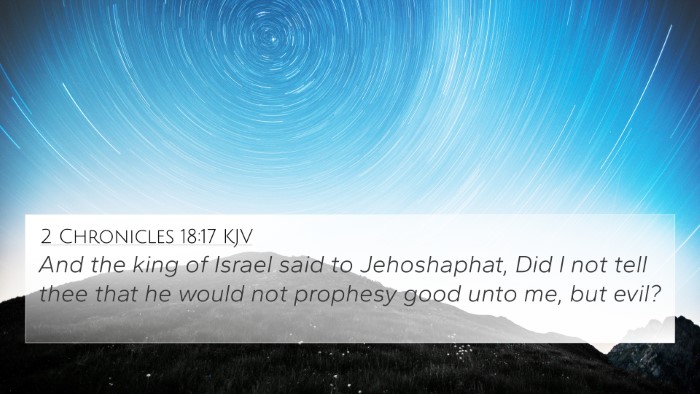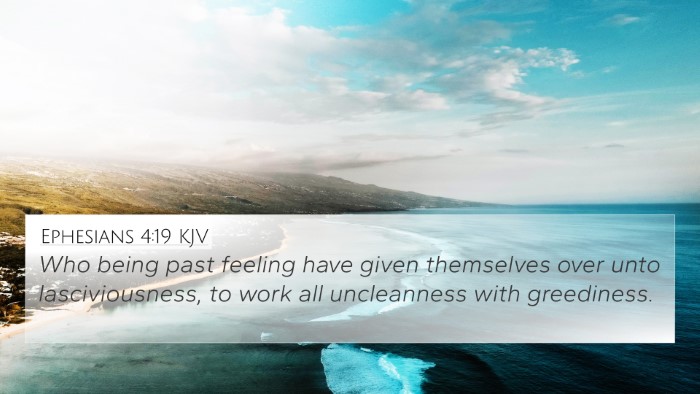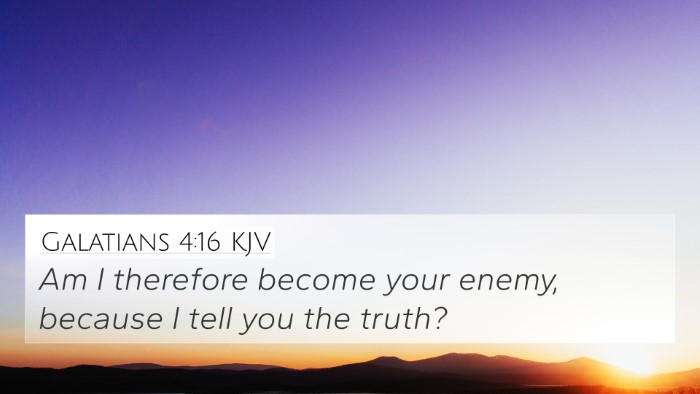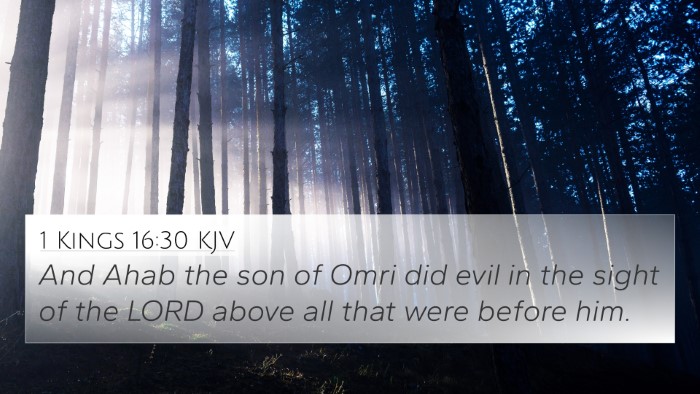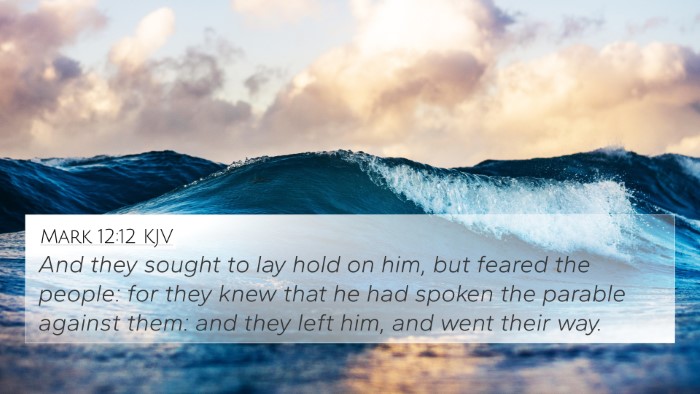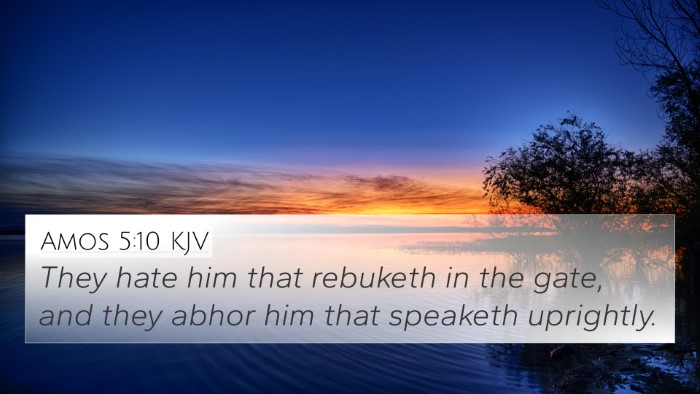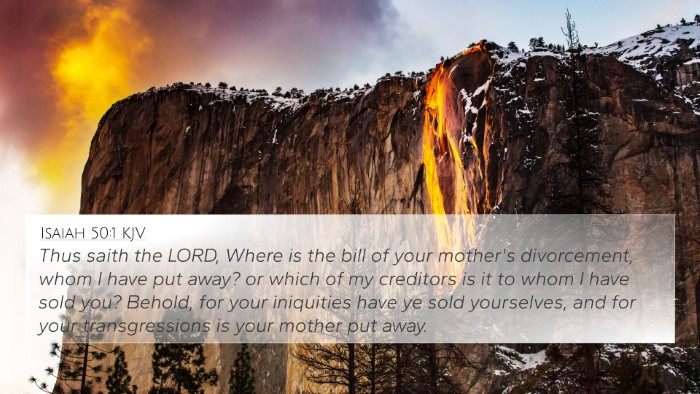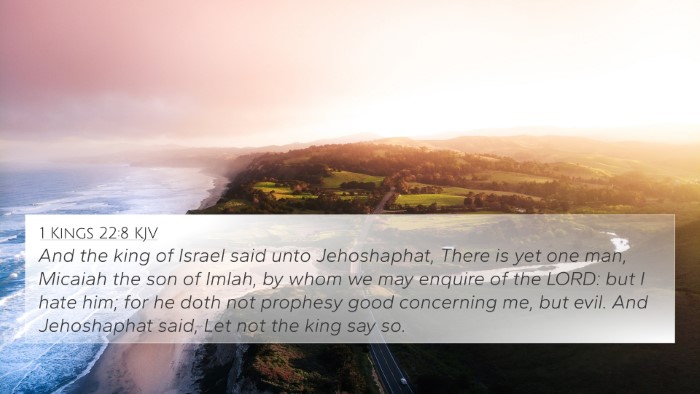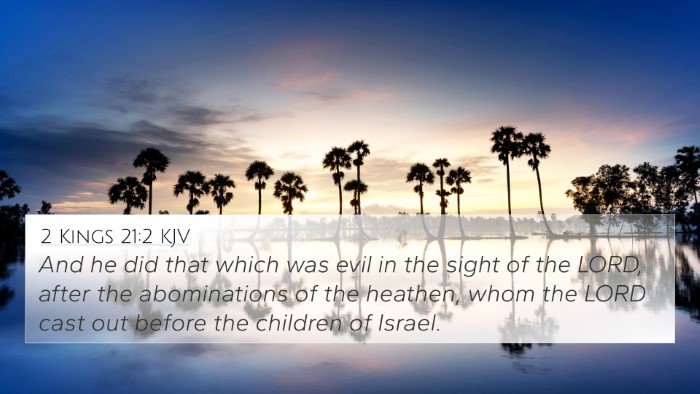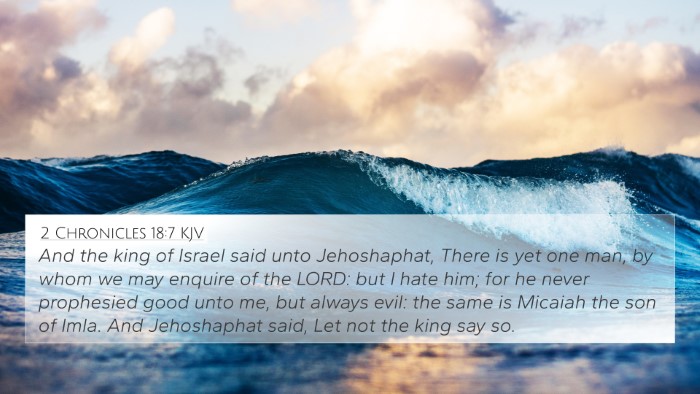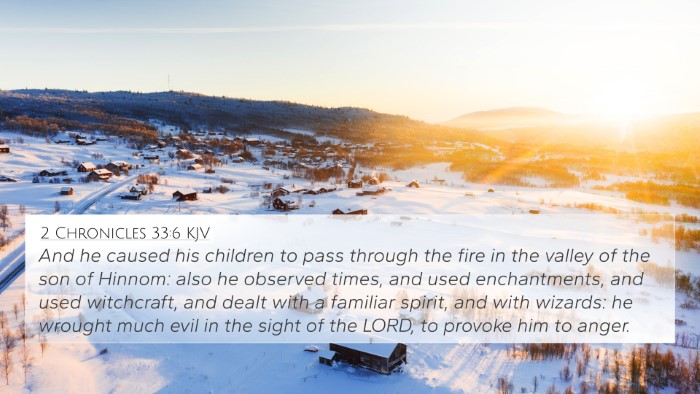Understanding 1 Kings 21:20
Verse: 1 Kings 21:20 - "And Ahab said to Elijah, 'Have you found me, O my enemy?' And he answered, 'I have found you because you have sold yourself to do evil in the sight of the LORD.'
Summary of Meaning
This verse captures a pivotal moment in the conflict between King Ahab and the prophet Elijah. Ahab's acknowledgment of Elijah as his "enemy" reflects the moral and prophetic confrontation concerning his actions, particularly regarding Naboth's vineyard. Elijah's response reveals those actions as products of Ahab's choice to embrace wickedness.
Commentary Insights
The significance of this encounter is elaborated upon in various public domain commentaries:
- Matthew Henry: Henry emphasizes Ahab's connection with evil, highlighting that his actions are not merely political but deeply moral. He notes that Ahab's willingness to forsake righteousness in pursuit of greed led to his downfall. This illustrates the wider biblical theme of accountability for one's choices and the severe consequences of evil.
- Albert Barnes: Barnes points out that Ahab's perception of Elijah as an enemy underscores the conflict between worldly desires and divine law. He explains that Elijah stands as a witness to Ahab's wickedness, emphasizing the role of prophets as divine messengers who challenge rulers. This teaches a lesson about the righteous being seen as adversaries by those who choose sin.
- Adam Clarke: Clarke expands on Ahab's response to Elijah, noting the king's focus on personal vendetta rather than repentance. He suggests that Ahab's self-proclaimed victimhood reveals a deeper spiritual blindness. Clarke stresses the importance of recognizing one's sinful actions rather than shifting blame onto others.
Bible Verse Cross References
To enrich the understanding of 1 Kings 21:20, it is beneficial to explore the following related Bible verses:
- 1 Kings 16:30-33: This passage discusses Ahab's evil compared to previous kings, setting the stage for his later actions.
- 2 Kings 9:30-37: This describes the judgment against Jezebel, Ahab's wife, illustrating the consequences of his evil actions.
- James 5:17: This verse mentions Elijah as a prophet, linking the New Testament to the Old Testament themes of righteousness and justice.
- Isaiah 5:20: A warning against calling good evil and evil good parallels Ahab's distorted moral compass.
- Exodus 20:17: The commandment against coveting connects to Ahab's desire for Naboth’s vineyard.
- Proverbs 28:13: This verse speaks to the importance of confession and forsaking sin, contrasting Ahab’s refusal to repent.
- Micah 6:8: Emphasizes doing justly, loving mercy, and walking humbly before God, principles neglected by Ahab.
Connections Between Bible Verses
Examining the connections between 1 Kings 21:20 and these verses demonstrates a continuous thread of moral accountability in the Scriptures:
- Linking Unrighteousness: The common theme of corruption among leaders, as seen in both Ahab's actions and the warnings given through the prophets, remind us of the dangers of power without accountability.
- Prophets as Conscience: The role of Elijah represents how God raises individuals to speak truth to power, a theme echoed throughout the prophetic books.
- Moral Consequences: These verses collectively affirm that evil deeds lead to inevitable divine judgment, reinforcing the biblical principle of sowing and reaping.
Tools for Bible Cross-Referencing
To delve deeper into cross-referencing, consider utilizing the following tools:
- Bible concordance
- Bible cross-reference guide
- Online Bible study tools that allow for inter-Biblical dialogue
- Print resources such as comprehensive cross-reference materials
- Apps that facilitate cross-referencing Bible study
Conclusion
The exploration of 1 Kings 21:20 reveals profound insights into human behavior, accountability, and the prophetic witness against evil. Understanding Ahab's story not only enriches our knowledge of biblical history but also serves as a cautionary tale regarding the consequences of moral failure.
